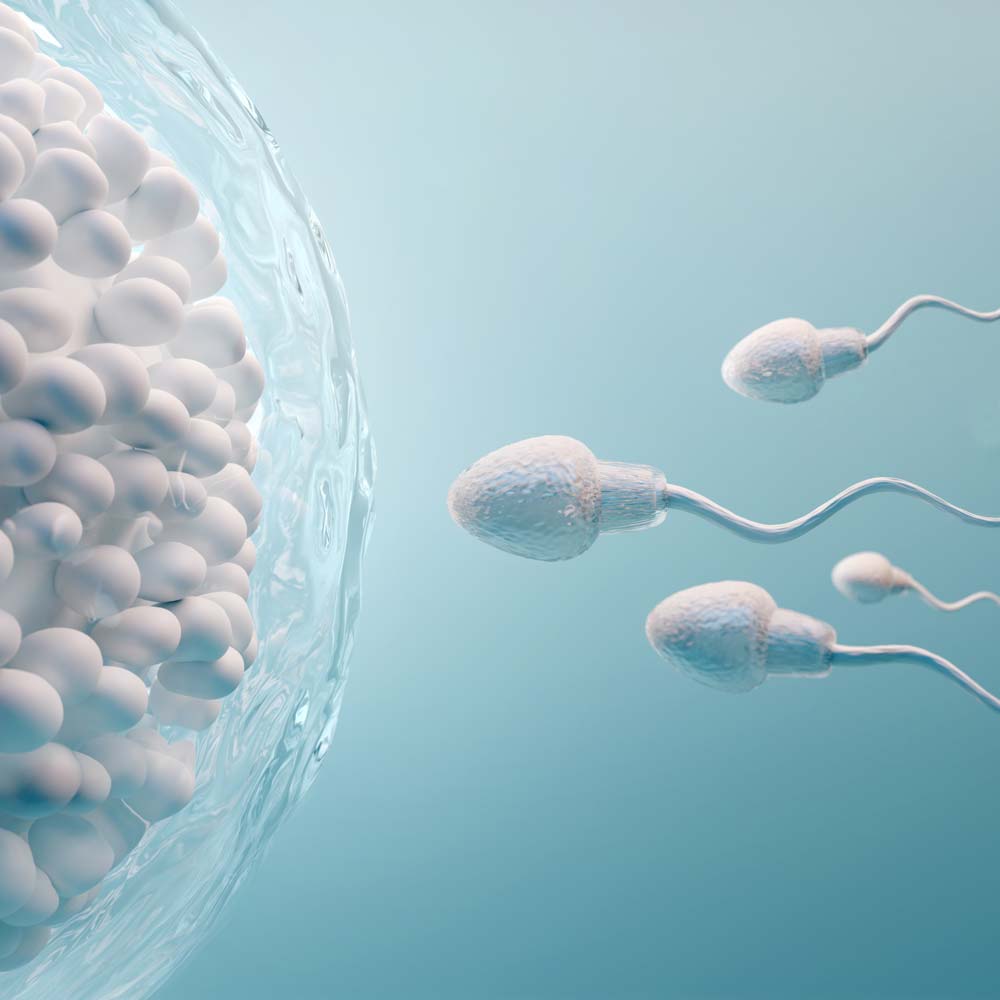Fertility
Medical Studies on Melatonin – Fertility

There have been studies on melatonin as an effective anti-cancer hormone for Fertility requires a healthy circadian rhythm, which is shaped by physiological melatonin levels. Any problem with the 24-hour cycle can have a negative impact on both female and male fertility.
Factors that prevent fertilisation
Factors include circadian rhythm disorders caused by jet lag and shift work, which adversely affects nocturnal melatonin production and ultimately prevents other hormones from being adequately produced. An impaired circadian rhythm also has a negative impact on the female menstruation cycle and can cause periods to become irregular or skipped, which can also have a negative impact on the reproductive system.
Melatonin and female fertility
Poor egg quality, often caused by oxidative stress, is considered to be one of the main causes of female infertility. With its anti-oxidative and anti-inflammatory properties, melatonin can prevent cells from being damaged by free radicals, which is especially important for ovulation. Especially in artificial fertilisation, eggs are exposed to even greater stresses. Researchers recommend that melatonin be administered before IVF in this case to improve egg quality.
Melatonin and male fertility
To improve male fertility, melatonin not only serves to increase the energy of the spermatozoa but also makes them faster and more agile. Melatonin also protects sperm from oxidative stress and improves its quality, which is essential to achieve successful fertilisation.
Medical Studies on Melatonin – Fertility
Background: Oocyte quality is one of the major deciding factors in female fertility competence. Methods: PubMed database was searched for reviews by using
Aging has a major detrimental effect on the optimal function of the ovary with changes in this organ preceding the
Spermatozoa (SPZ) are sensitive to stressful conditions, particularly oxidative stress, which alters their quality; thus, the use of protective molecules
Melatonin, as a free radical scavenger exhibiting genomic actions, regulates the antioxidant genes expression and apoptosis mechanisms. In polycystic ovary
To study whether melatonin treatment can increase clinical pregnancy rate and live birth rate in assisted reproductive technology (ART) cycles.
The effects of sleep duration on semen quality have been documented in many epidemiological studies. However, the association between sleep
The development of the endometrium is a cyclic event tightly regulated by hormones and growth factors to coordinate the menstrual
Unexplained infertility occurs when common causes for a couple's inability to conceive have been excluded. Although origins of idiopathic infertility
Melatonin is a lipophilic hormone synthesized and secreted mainly in the pineal gland, acting as a neuroendocrine transducer of photoperiodic
Oxidative stress is known as a major contributing factor involved in oocyte aging, which negatively affects oocyte quality and development
Premature ovarian failure is one of the side effects of chemotherapy in pre-menopausal cancer patients. Preservation of fertility has become
Good-quality oocytes are critical for the success of in vitro fertilization (IVF), but, to date, there is no marker of
What are the underlying mechanisms of the decline in the fertilization ability of post-ovulatory aged oocytes?
Assisted reproductive technologies (ART) have experienced growing interest from infertile patients seeking to become pregnant. The quality of oocytes plays
Polycystic ovarian syndrome (PCOS) induces anovulation in women of reproductive age, and is one of the pathological factors involved in
The physiology of oocyte in vitro maturation remains elusive. Generally, the oocytes have a very low maturation rate under in
Melatonin, an indolamine secreted by the pineal gland, is known as a powerful free-radical scavenger and wide-spectrum antioxidant.
The pineal hormone melatonin controls several physiological functions that reach far beyond the regulation of the circadian rhythm. Moreover, it
Infertility is the problem of 15% of young couples in different societies. One of the factors that could affect fertility
Melatonin has a wide variety of beneficial actions at the level of the gonads and their adnexa. Some actions are